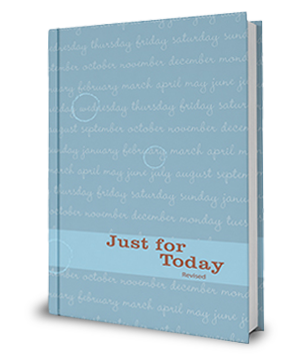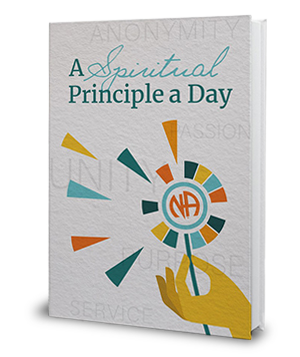Welcome to Narcotics Anonymous of NJ. Our Message Is…
That an addict, any addict can stop using drugs,
lose the desire to use, and find a new way to live.
Helpline
If you feel you have a problem with drugs, call our helpline
Events
See upcoming NA events and activities in NJ
Narcotics Anonymous is a nonprofit fellowship or society of men and women for whom drugs had become a major problem. We are recovering addicts who meet regularly to help each other stay clean.
– Narcotics Anonymous Basic Text, page 9
Recovery from addiction is possible and available through the 12 Steps and 12 Traditions of Narcotics Anonymous.
Narcotics Anonymous is FREEDOM from active addiction.
Narcotics Anonymous is an international, community-based association of recovering drug addicts with over 61,000 weekly meetings in over 131 countries worldwide.

Just for Today
In many ways, addicts are different. When we came to Narcotics Anonymous we found others like ourselves, people who understood us and whom we could understand. No longer did we feel like aliens, strangers wherever we went. We were at home in NA meetings, among friends.
We don't stop being addicts after we've been clean awhile. We still need to identify with other addicts. We continue coming to NA meetings to keep in touch with who we are, where we've come from, and where we're going. Every meeting reminds us that we can never use drugs successfully. Every meeting reminds us that we'll never be cured, but that by practicing the principles of the program we can recover. And every meeting offers us the experience and example of other addicts in ongoing recovery.
At meetings, we see how different people work their program, and the results are apparent in their lives. If we want the lives we see others living, we can find out what they've done to get where they are. Narcotics Anonymous meetings offer us identification with where we've been and where we can go--identification we can't do without and can't get anywhere else. That keeps us coming back.
A Spiritual Principal a Day
Feelings get a bad rap, so it's no wonder many of us tried to avoid them. At best, they seemed complicated and uncomfortable. At worst, they posed a threat to us, since appearing vulnerable might be dangerous. By the time we find recovery, we may be accustomed to being shut down emotionally. Our hardened exteriors were an asset in active addiction, protecting us like armor. But, like so many of those old survival skills, we find being emotionally unavailable hinders our recovery. We need a different approach.
Having little to no experience with emotional well-being, many of us tried to select which feelings we would feel. Unsurprisingly, we welcomed feelings that brought us pleasure: love, connection, joy, satisfaction--bring it on! On the other end of the spectrum, we did our best to stuff or avoid anger, heartache, or dread. Sadly, we recognized that this familiar pattern of seeking pleasure and avoiding reality--retooled without the cushion of drugs--was not an effective path to emotional health.
Try as we might to avoid it, we all face adversity eventually, and the emotions that accompany it flood in. When we first experience despair without drugs, we may feel like we're going to die. "Everything is horrible!!" we tell our sponsor dramatically. Though we'd been fishing for a cosigner, we settled for some empathy. We're offered assurances that our troubles are neither inescapable nor permanent.
"I think of my feelings as works in progress," our sponsor explains. "I won't deny my emotional response these days because I know it's just a first draft, not ready to be framed and hung on a wall. My feelings can evolve with some time and distance, just as I do. The hope I found in NA gave me the courage to test out this theory. My optimism is rooted in experience. I have faith that better times will come."

